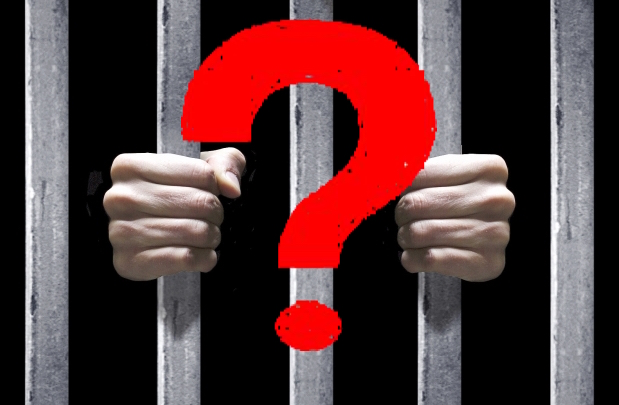The name 'Eddie Tipton' may sound familiar. That's because this Multi-State Lottery Association employee has recently been sentenced for rigging the Hot Lotto Draw way back in December 2010. Further investigations have also revealed that he may have been involved in rigging the outcome of three other lotteries.
Clearly for those working in the industry, the temptation to rig a lottery is strong. But it would seem that there’s no escaping the long-arm of the law. Even if it does take time to catch the perpetrator, they always get their man in the end.
The story of Eddie Tipton
It all starts in December 2010 when a prize of $14.3 million dollars was up for grabs in the Hot Lotto. Despite the fact that it had been won, the ticket remained unclaimed for nearly a year. That’s when Phillip Johnston, a resident of Quebec City Canada, contacted the Iowa Lottery to claim his prize. He claimed that he was unable to claim the prize in person due to ill health. But when he couldn’t answer the questions which would verify him as the rightful owner of the ticket, his claim was turned down.
Almost a month later he phoned the Iowa Lottery again. This time he told them that the ticket was actually owned by an anonymous individual. And this individual was being represented by a Belize-based shell company called Hexham Investments Trust. Once again, his claim was turned down as the Iowa Lottery does not allow anonymous prize claims.
With less than two hours to go before the one-year deadline for prize tickets expired, representatives of a Des Moines law firm presented the winning ticket at the Iowa Lottery headquarters. It had been signed on behalf of Hexham Investments and New York City-based attorney Crawford Shaw.
Despite presenting the physical ticket, their claim was also turned down because the name ‘Hexham’ had been spelt incorrectly. Even in 2012 when Shaw met with lottery officials, his claim was denied because he would not name the owners of the trust.
But this is where it gets interesting. Through investigations and interviews it was revealed that the original claimant, Philip Johnston, had been approached by Robert Rhodes and Robert Sonfield of Sugar Land, Texas to assist them in claiming the prize anonymously. Which only makes you wonder why the two men wouldn’t come forward themselves if they were the legitimate owners of the winning ticket.
It was the surveillance footage from the convenience store where the ticket was bought that eventually led investigators to identify Eddie Tipton as the man who bought the ticket. As an MUSL employee, it was illegal for Tipton to participate in any lottery game. And it later emerged that he had been working with Robert Rhodes at a Houston based company, Systems Evolution, for seven years.
How did he do it?
In a nutshell, Tipton simply rigged the machine to ensure that the numbers would match those of the ticket he bought. On the night of the draw he entered the building where the draw computer is kept to manually adjust the time to reflect daylight savings. The prosecutors argued that he could well have smuggled a flash drive into the room and installed self-destructing malware to mess with the computers random number generator.
Naturally, Tipton’s lawyers argued that this was not possible given the fact the room and computer are carefully monitored to prevent such a thing from taking place. But it was the fact that co-workers and friends identified Tipton’s voice in the surveillance recording that convinced the judge of his guilt. And furthermore, the director of IT at MUSL testified that Tipton had access to a rootkit which would allow him to manipulate the draw machine.
The final judgement
Tipton was found guilty on two counts of fraud and sentenced to 10 years imprisonment in December of 2015. But he remained a free man after appealing his sentence.
The story doesn’t end there.
Tipton is also facing criminal charges for the suspected rigging of other two other lotteries. The first took place in 2005 when his brother, Tommy Tipton won a $568,990 jackpot prize in the Wisconsin Lottery. And once again in 2007 when a prize of $783,257 was paid to a corporation controlled by Robert Rhodes. Both the Tipton brothers are currently being investigated.
The implications for MUSL
Aside from damaging the reputation of the Iowa Lottery, the scandal also resulted in the MUSL and Iowa Lottery being sued by Larry Dawson. He won the $6 million Hot Lotto jackpot several months after the rigged draw. He claimed that had the draw been found illegitimate, the prize money would have rolled over, resulting in his prize being $16 million instead.
Should ordinary lottery players be worried?
Since the scandal broke, MUSL Iowa’s CEO, Terry Rich made a statement saying stronger security measures had been implemented to reassure the public. Although one may think that the old-fashioned random number generator of numbered balls in a vacuum may be safer, but even those can be hacked.
There are dozens of security measures in place to ensure that the computer responsible for generating the winning numbers is not compromised in any way. And for those who may be contemplating rigging a draw, Tipton’s story should serve as a warning. Verifying a winning ticket is a serious business and should anything be amiss, your claim could be denied.
There’s no reason to stop buying tickets for your favourite lottery. Provided you play by the rules, all it takes is one ticket to change your life forever. Even if others don’t play by the rules, you can rest assured that they will be caught. Just like Eddie Tipton.





